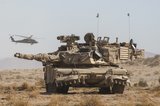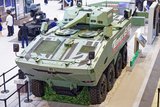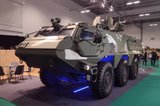Saab announces RBS 70 missile order
Saab has received an order worth around $32.45 million for delivering of RBS 70 missiles along with equipment and training to an undisclosed customer, the company announced on 29 June.
The RBS 70 missiles and additional equipment will be delivered between 2015 and 2016.
The RBS 70 is a short-range ground-based air defence missile system, and Saab has sold over 1,600 launchers and 17,000 missiles to 19 countries so far.
Görgen Johansson, head of dynamics, Saab, said: 'One of our customers of the RBS 70 system has placed an additional order to achieve added capacity of its forces. This order demonstrates the reliability of the RBS 70 system, as well as the high quality of our manufacturing and support capabilities.
'The RBS 70 is a modern system with a long lifespan. An increasing number of customers are discovering its flexible design, which allows for the system to be continuously upgraded.'
Related Equipment in Defence Insight
More from Land Warfare
-
![World Defense Show 2026: Saudi Arabia’s record defence spend highlights uncertain times]()
World Defense Show 2026: Saudi Arabia’s record defence spend highlights uncertain times
Saudi Arabia’s investment in its land forces, notably in the area of air defence as recently as 30 January, is a sign of the challenges the Gulf State faces, particularly the threat from Houthi rebels in Yemen.
-
![Singapore Airshow 2026: ST Engineering’s Terrex s5 highlights hybrid power’s role in future warfare]()
Singapore Airshow 2026: ST Engineering’s Terrex s5 highlights hybrid power’s role in future warfare
Hybrid-electric drive technology may address the growing energy demands of land warfare in future.
-
![CAVS rides a wave and prepares for surge requirements as orders roll in]()
CAVS rides a wave and prepares for surge requirements as orders roll in
The Common Armoured Vehicle System is continuing to rack up orders as the British Army looks likely to become an operator of the vehicle, while Italy and Ireland are also contenders.
-
![US DoD task force’s DroneHunter acquisition lays groundwork for Replicator 2 CUAS strategy]()
US DoD task force’s DroneHunter acquisition lays groundwork for Replicator 2 CUAS strategy
As the US Department of Defense looks to counter the growing threat of uncrewed aerial systems to improve homeland security, the DroneHunter acquisition could point to future commercial innovation.
-
![Land forces review: Tanks, trucks and IFVs dominate but woes remain for Ajax]()
Land forces review: Tanks, trucks and IFVs dominate but woes remain for Ajax
This year has begun with main battle tanks taking the lead while orders for large logistics and support vehicles continued from last year. Additionally, two of the British Army’s most significant contracted vehicle programmes, Ajax reconnaissance vehicle and Challenger 3 tank, continued to make news in January.























